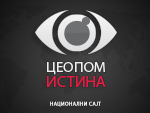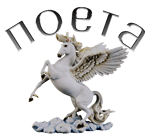AN OPEN LETTER TO THE CANADIAN PUBLIC
Earlier this month, the honourable Robert Oliphant, Member of the Liberal Party of Canada and M.P. for Don Valley West, introduced Bill C-533 into the House of Commons, “calling for the establishment of a national day of remembrance in Canada called Srebrenica Remembrance Day”. In what is clearly a blatant attempt to turn the complex and multisided human tragedy of the Yugoslav Civil Wars into a one-dimensional political talking point, the honourable Robert Oliphant ignores completely the full context of the Srebrenica Massacre and the countless brutal war crimes committed by Bosnian Muslim forces and their Al-Qaeda-linked Mujahedeen allies against Serbian civilians and other ethnic minorities throughout Bosnia and Herzegovina.
In order to put pressure on the ruling Conservative Party of Canada, and in the name of cheap political points and partisan politics, the honourable Robert Oliphant and all those supporting Bill C-533 are attempting to simplify a multisided, multiethnic civil war in order to portray one side in the conflict as victims and the other as aggressors, while at the same time completely ignoring and thereby shamelessly insulting the tens of thousands of innocent Serbian civilians who were brutally murdered during the Yugoslav Civil War. In fact, many of those killed met their end at the hands of Bosnian Muslim soldiers and paramilitaries.
The Serbian community of Canada and all Canadians who value truth and justice over partisan politics wish to turn the honourable Robert Oliphant’s attention to some key issues that he has regrettably chosen to ignore and brush aside:
The Serbian people were the victims of not one but three genocides during the 20th century:
o Hundreds of thousands of Serbian civilians were brutally massacred by Austro-Hungarian, Ottoman and Bulgarian forces during the First World War. Many of these crimes were committed by Bosnian Muslim forces fighting on the side of Austria-Hungary against the Serbs, a fact well documented by such war crime investigation pioneers as Dr. Archibald Rudolph Reiss.
o During the Second World War, many Bosnian Muslims joined the Nazi puppet Independent State of Croatia and contributed to the extermination of hundreds of thousands of Serbs, Jews and Roma peoples in concentration camps such as Jasenovac and Stara Gradiska. In fact, the SS Handschar, one of the thirty-eight divisions of the Nazi Waffen-SS, was formed largely from Bosnian Muslim recruits bent on exterminating and ethnically cleansing the Serbs, Jews and other minorities on the territory of Bosnia and Herzegovina.
o Throughout the Yugoslav Civil Wars of the 1990s, the Serbs were the victims of multiple campaigns of genocide and ethnic cleansing on the territories of Croatia and Bosnia and Herzegovina orchestrated in large part by the direct descendents of the SS Handschar, who attempted to realize Alija Izetbegovic’s dream of an ethnically and religiously pure Islamic Bosnia as outlined in his supremacist manifesto, The Islamic Declaration, which was first published as early as 1970.
The simple fact is that the Yugoslav Civil Wars were a multisided, multiethnic civil conflict whose complex nature cannot be reduced to a one-dimensional “good guys versus bad guys” scenario. Any attempt to do so is a blatant insult to the intelligence of the Canadian public and to the memory of all the innocent civilians who perished in that war.
Regrettably, the honourable Robert Oliphant makes no attempt to properly analyze the full context of the Srebrenica Massacre. I wish to inform him that prior to the Serbian forces taking the Srebrenica enclave in July of 1995, the enclave itself was being used as a staging area for military operations by Bosnian Muslim paramilitaries led by Bosnian warlord Naser Oric. These paramilitaries, aided by Mujahedeen terrorists from Saudi Arabia, Pakistan, and Afghanistan, committed countless unspeakable war crimes in and around the towns of Srebrenica and Bratunac from 1992 all the way up to July of 1995. In fact, entire Serbian villages were raised to the ground, Christian churches destroyed, graveyards desecrated, and over three and a half thousand Serbian civilians were mercilessly butchered during those three years. Due to the fact that most Serb men of the region were conscripted into the Serbian army, Naser Oric and his paramilitaries almost exclusively targeted innocent civilians, including women, children, and elderly Serbs who had no ability or opportunity to flee the carnage.
Once the Serbian forces entered the Srebrenica enclave in July of 1995, war crimes were undoubtedly committed and the Geneva Convention was violated. This is inexcusable and reprehensible, regardless of the circumstances. Nonetheless, many of the Serbian soldiers who entered Srebrenica had their families slaughtered by Bosnian Muslim paramilitaries, and to portray the Srebrenica Massacre as an isolated incident without a proper context is a direct affront to truth and justice. Furthermore, many questions about the Srebrenica Massacre remain unanswered to this day, including how many of the Bosnian Muslim men of fighting age who were allegedly executed by Serbian forces were in fact executed as prisoners and how many died in battle while trying to mount a retreat towards the Bosnian Muslim wartime stronghold of Tuzla along with Naser Oric and his paramilitaries. What is known and well documented, however, is the fact that the Bosnian Muslim civilians of Srebrenica, including women, children and the elderly, were assured safe passage to Serbia by the Serbian forces, which is more than the Bosnian Muslim paramilitaries ever offered the Serbian civilians of Srebrenica and Bratunac.
Beyond the issue of Srebrenica itself, tens of thousands of Serbian civilians lost their lives throughout the Yugoslav Civil War of the 1990s, and hundreds of thousands were ethnically cleansed from their homes in modern-day Croatia and Bosnia and Herzegovina. The vast majority of these people were never offered the opportunity to recoup their losses, and to this day Serbia remains the country with the largest number of refugees and displaced persons in all of Europe. Furthermore, Serbia, unlike Bosnia and Herzegovina and Croatia, remains the most multiethnic and diverse of all the Former Yugoslav Republics.
With all of this in mind, the Serbian Community of Canada and all Canadians who value truth and justice demand a clear answer from the honourable Robert Oliphant as to why he believes that the lives of Serbian civilian victims who were murdered by Bosnian Muslim forces are worth less than the lives of Bosnian Muslims? Furthermore, we demand that he justify to the Canadian public why he does not feel that all the innocent victims of the Yugoslav Civil War deserve to be properly remembered, and why he is insisting that only Bosnian Muslims deserve a remembrance day? If there is to be a remembrance day, it ought to honour the memory of all innocent people, including the tens of thousands of Serbian civilians who died during the Yugoslav Civil War, and it should not serve a partisan political purpose. Moreover, if there is to be a remembrance day for the victims of genocide, then the Serbian people who suffered three genocides in the 20th century alone and lost millions of innocent lives in the process deserve to be remembered as much as anyone.
Serbian lives are not less important! Serbian victims must not be ignored! The truth cannot be brushed aside!
In the name of the Serbian Community of Canada, I invite the honourable Robert Oliphant to answer publicly for his actions, and I challenge him to defend his stance in a public forum. I am personally more than willing to engage him in debate on this important issue on any and all Canadian media outlets.
Sincerely,
Bojan Ratkovic
Founder and President of the Serbian Youth League of Canada
Filed under: AKTUELNO, English | Leave a comment »














































